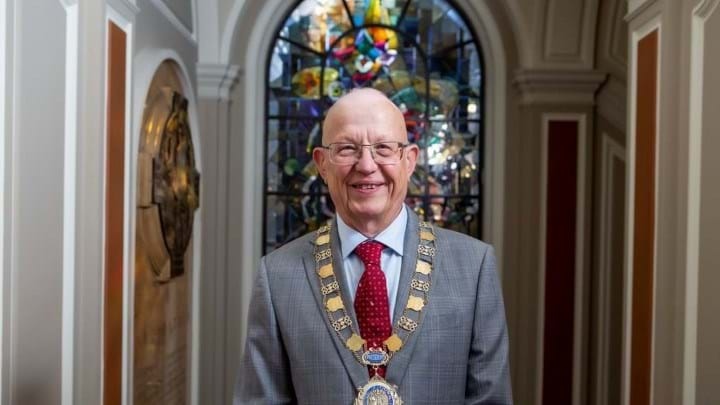ChemEng: Making a ‘unique and priceless’ contribution

Nigel Hirst delivers his presidential address on using the ‘art’ of chemical engineering to help solve grand challenges
NIGEL HIRST has become the 82nd president of IChemE. He delivered an address on 14 June on the “unique and priceless” contribution that chemical engineering can make to the grand challenges facing society, and shared his plans for IChemE in the coming year.
The art of chemical engineering
For the theme of his speech, given at the the Royal Society of Chemistry’s London headquarters, Hirst took inspiration from being across the way from the home of the Royal Academy of Arts. He pointed to the proposed new wording for IChemE’s Royal Charter, which mentions advancing the “art” of chemical engineering, and pondered what the art of it is.
“Is it just a neat bit of process design? Or a particularly elegant bit of scientific theory? Well, I think it’s different to that.”
Hirst said that since carrying out his last chemical engineering calculation – likely in 1988 – he has been practicing “the art of chemical engineering”. He defined the art as: “To persuade those outside the profession of the unique and priceless contribution chemical engineers can make to solving the world’s ‘grand challenges’.”
Hirst highlighted the keynote centenary talks given last year by Adisa Azapagic and Ken Rivers as being on topics that “the average person on the street” can relate to and that can help explain what chemical engineering is. Azapagic, who is a professor of sustainable chemical engineering at the University of Manchester, UK, discussed how chemical engineering is responding to modern challenges more sustainably. Rivers, a former IChemE president and member of the UK government’s industry safety steering group, talked about the contribution that chemical engineers make in the management of major hazards.
Hirst said that for both process safety and sustainability “chemical engineering has got something to speak to the world about, and we must take that opportunity”.
Moreover, he said a key outcome of the centenary project was the recognition that the UN Sustainable Development Goals (SDGs) provide the “vocabulary” to describe society’s grand challenges. In turn, IChemE is using this vocabulary to rephrase its future technical roadmap and the priority topics that will be addressed through its latest strategy running to 2028: energy and climate action (SDGs 7 and 13); water and sanitation (SDG 6); food, health, and wellbeing (SDGs 2 and 3); and responsible production, innovation, and industry (SDGs 9 and 12). Meanwhile, the cross-cutting themes will include quality education, process safety, and digitalisation.

This article is adapted from an earlier online version.
Recent Editions
Catch up on the latest news, views and jobs from The Chemical Engineer. Below are the four latest issues. View a wider selection of the archive from within the Magazine section of this site.




